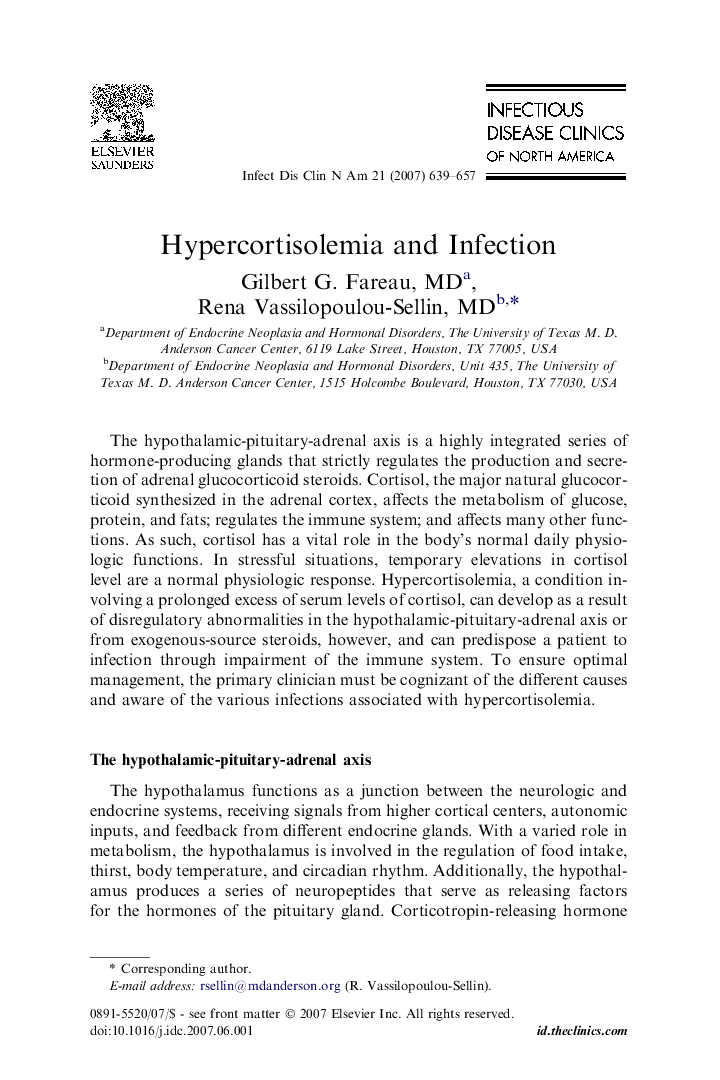| Article ID | Journal | Published Year | Pages | File Type |
|---|---|---|---|---|
| 3404727 | Infectious Disease Clinics of North America | 2007 | 19 Pages |
Abstract
Hypercortisolemia is a condition involving a prolonged excess of serum levels of cortisol that can develop as a result of disregulatory abnormalities in the hypothalamic-pituitary-adrenal axis or from exogenous-source steroids. Hypercortisolemia induces a state of immunocompromise that predisposes the patient to various bacterial, viral, fungal, and parasitic infections. To ensure optimal management of hypercortisolemia, the primary clinician must be cognizant of its different causes and aware of the different infections associated with cortisol excess. In the hypercortisolemic patient, it is necessary to restore normal cortisol levels to reduce the risk of infection or to improve the control and cure of established infection.
Related Topics
Health Sciences
Medicine and Dentistry
Infectious Diseases
Authors
Gilbert G. Fareau, Rena Vassilopoulou-Sellin,
